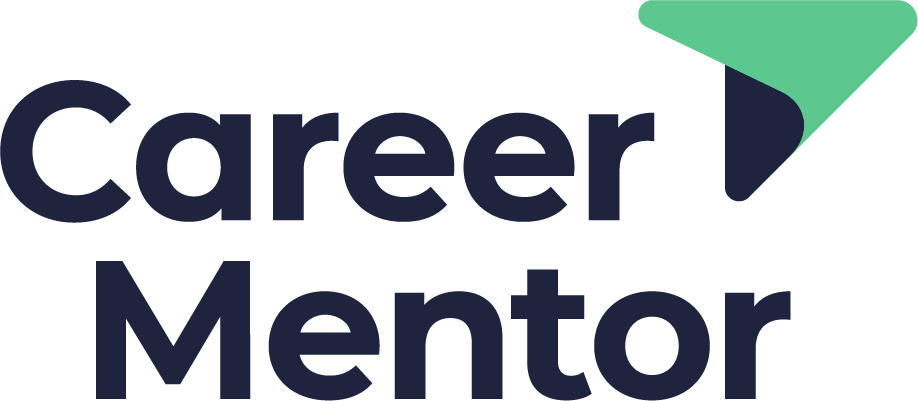What’s your career equity?
As we progress through our career, it’s useful to understand the components of our career equity: the value that we’ve accumulated over the course of our career. This helps us to understand where we are and where we’ve got to so far. It also gives us the opportunity to spot any weak areas of our game and to create a plan to improve all aspects, building towards our broader career goals and vision. In this week’s blog, we’ll look at the 7 key components of your career equity.
You are the prize: know your worth in a job search
In a recent conversation with a potential client, I couldn’t understand his reluctance to reach out to decision makers and potential employers. This was despite him being highly motivated to move to a better firm. It turned out that he had a strong sense that he didn’t want to go ‘cap in hand’ and ask (or in his mind,' ‘beg’) for help, either from his network contacts or from key people who might want him to join their firm.
So what’s the mindset that drives this avoidant behaviour and how can we turn it around to maximise chances of job search success
How to handle ‘Please prepare and present your business plan’ in an interview
There may come a time in your job search when you’re asked by a firm to present your business plan as part of the recruiting process. On the one hand, you don’t want to give away your best ideas, and yet you do want to be credible.
What do I do for my second act?
F. Scott Fitzgerald once said: “There are no second acts in American lives”. It’s the idea that people who’ve done great things don’t go on to do more.
Here’s how to ask your network for help and actually get it
We all know that an important way to accelerate your job search is to be introduced to people who are senior and may be hiring managers. However, we also know that whilst promises are made in the moment, follow through and actually making the connection happens all too infrequently. So, what can you do to encourage your network contacts to actually deliver on what they say they’ll do in the moment?
Behavioural interview questions: key things to consider
Behavioural interview questions are bound to come up in almost any job interview. To deal with them effectively, they need to be answered slightly differently to 'competency questions. As part of our Foundation Coaching programme, we spend a good chunk of time looking at interviews, different question types, and how to best answer them. Clarifying what a behavioural interview question is - and how to effectively answer them - is the subject of this week’s blog.
Job search language counts: let’s be precise
Last night, I had a conversation with someone, trying to understand his job search efforts so far. Over the course of our chat, several job search ‘buzzwords’ were thrown around: networking, prospecting, marketing, to name a few. All three are absolutely central to an effective job search. That said, it’s important they’re used - and acted upon - with precision if you want your job search to be effective.
Job interviews: why being likeable matters
There’s no question that being able to demonstrate that you’re competent and have the skills and experience to do the job that they’re recruiting for is critical to success. There is, however, another factor that will often make all the difference: likeability.
Three great ways to improve the examples you give in a job interview
When giving an example to the interviewer, you want to illustrate that you’re a great candidate, perhaps the best candidate for the role. You won’t achieve this if you’re off point, boring or simply lose the interviewer in an over-complicated and verbose answer.
So, in this short read. we’ll look at how to prepare first class examples that you can use to showcase your abilities in the very best way.
Career mistakes that many learn the hard way: Part 2
If there are common career mistakes that others have learnt the hard way, let’s learn from their experiences and avoid making the same ones. This is Part 2 of a two-part series on career mistakes that many learn the hard way.
Career mistakes that many learn the hard way: Part 1
Over my 22-year career in Financial Services Executive Search and now, having been a Career Coach since the Global Financial Crisis, I’ve noticed some common career mistakes that even the most accomplished professionals make.
Forewarned is forearmed, so here’s Part 1 of a list of mistakes that many learn the hard way and can be avoided.
You think you’re about to be made redundant. What next?
There may be a different feeling at work. Some people’s behaviour towards you has shifted. You’re no longer invited to certain meetings. In all, you have a gut feeling something isn’t right. Worst case scenario, you become worried that you may be about to be let go. If you find yourself in this position, what should you do? In this week’s blog, we discuss what you should always be doing as your default and what to do as you begin to read the runes.
9 ways to serve your professional network
Effective network is all about authentic reciprocity. Should the time come where you need to lean on your network - for example, if you’re looking for a new role - you’re far more likely to be met with success if you’ve been genuinely serving your network before the need arose.
6 ways to avoid job search burnout
There’s no doubt that conducting a job search can be a time-consuming and arduous endeavour. This is especially true if you’re out of work and have the additional pressure of cash flow concerns. So, what can you do to minimise stress and potential burnout during your job search?
Future boss hunting: wait, what?
The normal model for a job search is that you go online and apply for jobs, or hope that a recruiter will send you forward for openings that they’re working on. Perhaps you do some ‘networking’ by calling people you know and you may even meet a few for coffee. Our belief at Career Mentor is that in an effective job search, you need to be more proactive and in control of the process.
Body language in interviews: 3 levels to consider
When you think about all of the things that go into presenting yourself in the optimum way during an interview, your posture and body language should definitely be on that list. In this blog, I’ll run through three levels to consider when it comes to body language and job interviews.
Network messaging: 5 steps to an effective message
During a job search, you’re going to be reaching out to people in your professional network. Those people may be warm, lukewarm or cold contacts. There are a variety of reasons for wanting to send a message - primarily, it’s a step to ask for help to find and secure a job that aligns with your broader career goals. You’ll likely be doing this via text, email, Bloomberg or - increasingly - LinkedIn message.
Job Search Red Flag - Incentivisation
When you’re assessing a particular firm to join, there’s an important factor to consider and that’s how they’ve set up their incentives. This is an area that’s often overlooked, but might well be a red flag. This is a key area I cover with my clients once they’ve secured a job offer. It’s an area worth considering carefully and asking thoughtful questions about during the interview process.
First 90 Days: Help! This isn’t what I signed up for
Starting a new role at a new firm and getting the nasty shock that things aren’t quite what you signed up for is, thankfully, not a common occurrence. However, it does happen, so it’s certainly worth knowing about because it’ll determine the actions you take and the question you ask as you’re accepting an offer and joining a new firm.
Job interviews: the two agendas
If you’re having a job interview with one interviewer, there are two agendas for you to contend with. If there’s more than one person - well, let’s not even go there (just yet). In this brief read, let’s look at what those two agendas are so that you can lift your level of interview skills and thus achieve better job search results.



















